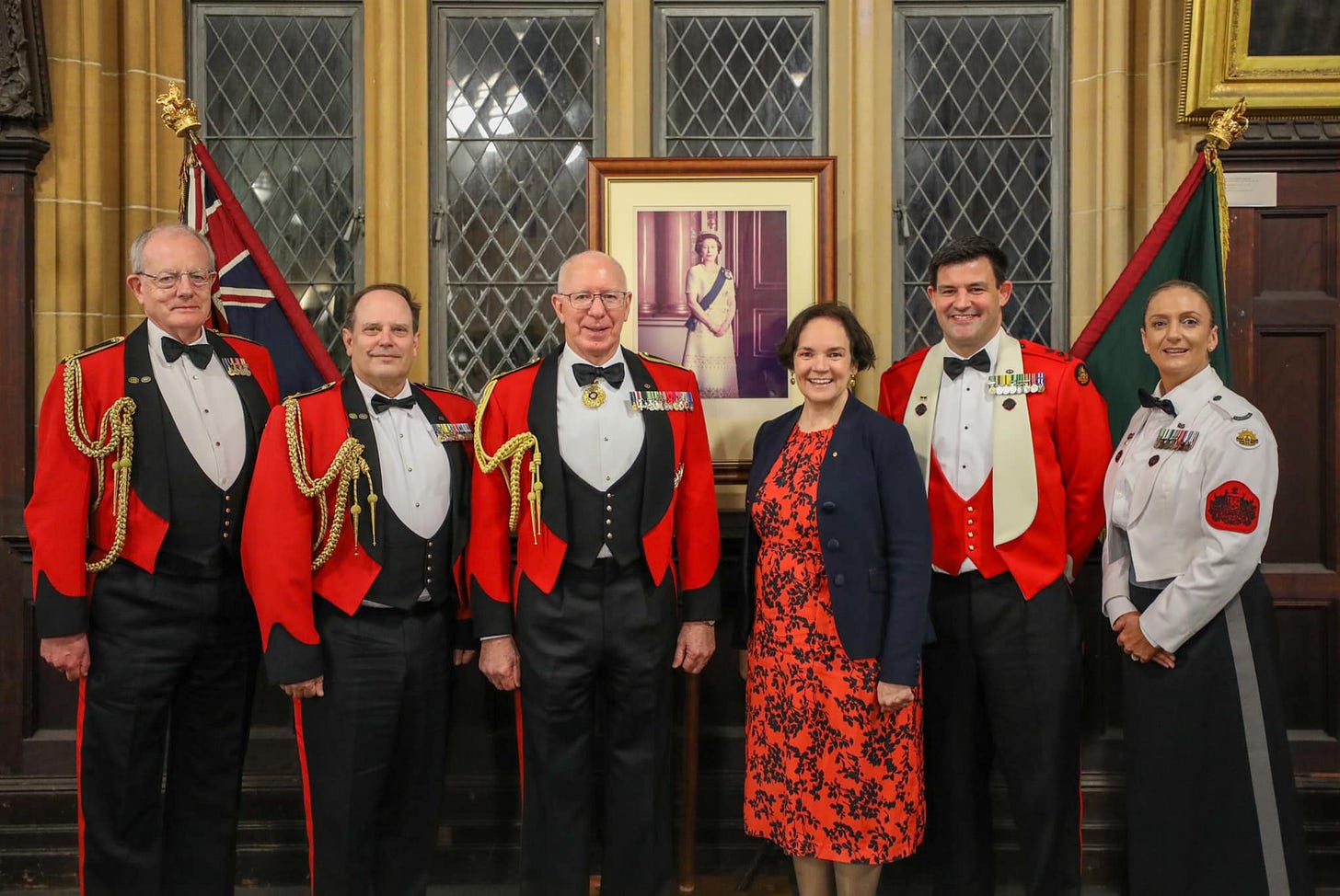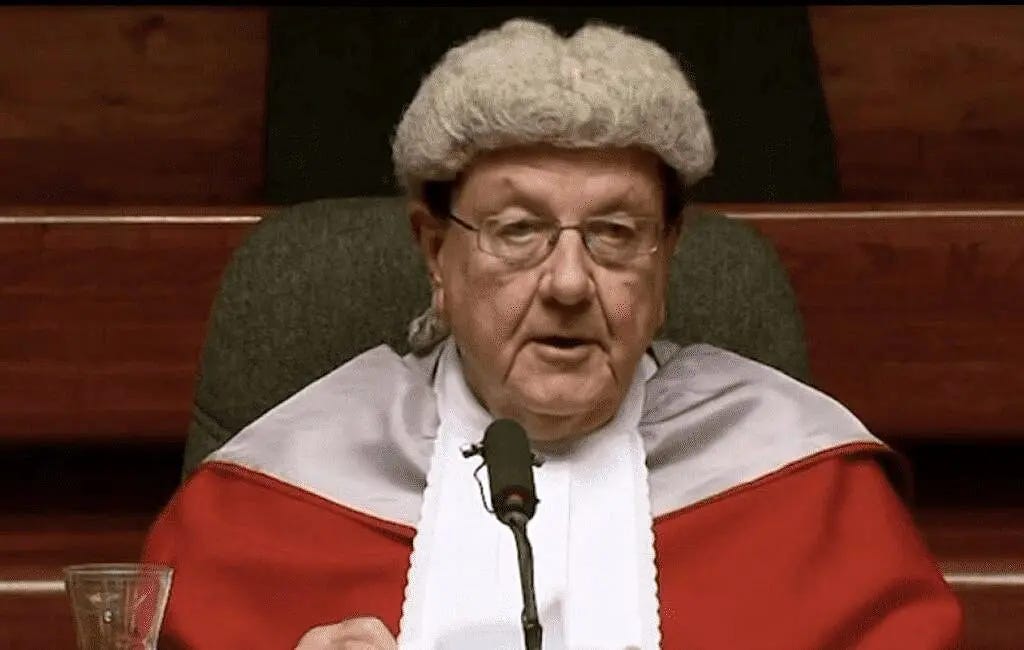NACC's year-long Robodebt decision: just two pages long
Top former judge says the NACC has ‘betrayed its core obligation and failed to fulfil its primary statutory duty’
EXCLUSIVE
The National Anti-Corruption Commission’s decision not to investigate the six officials at the heart of the Robodebt scandal — a decision it took nearly a year to announce — comprises just two pages.
Former judge Stephen Charles AO KC, who spent 11 years on the Appeals Court of the Victorian Supreme Court, said the revelation was ‘extraordinary’ and showed the NACC had no good reason for refusing the referrals.
‘The fact that there was merely a two-page report is an indication of the NACC’s embarrassment at the absence of any good reason for refusing the Robodebt referrals,’ he said.

Former NSW Supreme Court judge, Anthony Whealy KC, now chair of the Centre for Public Integrity, said that in refusing to act the NACC had ‘betrayed its core obligation and failed to fulfil its primary statutory duty’.
The NACC has ‘betrayed its core obligation and failed to fulfil its primary statutory duty’ – Anthony Whealy KC
The NACC’s shock announcement on 6 June stated that, ‘the conduct of the six public officials in connection with the Robodebt Scheme had already been fully explored by the Robodebt Royal Commission’. The NACC claimed ‘a further investigation’ was unlikely to produce ‘significant new evidence’.
But this was incorrect, says Charles, noting that the Royal Commission was not asked to investigate corruption. Its terms of reference did not include the power to investigate corruption, which is why Robodebt Royal Commissioner Catherine Holmes referred the matter to the NACC.
Whealy agrees that Holmes did not have that jurisdiction or capacity. ‘Unlike the Holmes Robodebt Royal Commission, the NACC has the unique and specific jurisdiction to make findings on whether or not the persons referred to it had engaged in corrupt conduct, as defined in the legislation,’ he told The Klaxon.
Whealy continued: ‘It was no answer to say: “These people have already been investigated.” What had not occurred was a determination – by the only body with the jurisdiction to do so – of whether the conduct in question constituted corrupt conduct.’
Charles added: ‘The National Anti-Corruption Commission has more powers at its disposal to investigate corruption than a royal commission, which is why Commissioner Holmes delayed handing down her report into Robodebt until the NACC was open for business and taking referrals.’
The fact that there was merely a two-page report is an indication of the NACC’s embarrassment at the absence of any good reason for refusing the Robodebt referrals – Stephen Charles AO KC
The NACC has not made public its two-page final decision and has also refused access to the document under Freedom of Information.
In response to a series of questions from The Klaxon, the NACC revealed on Thursday [22 August] that its final decision had been made more than seven weeks prior to it being announced publicly, and that the document had not been provided to the Government.
‘The final decision document is dated 16 April 2024 and comprises 2 pages,’ the NACC said. ‘It was not sent to Government, as there is no requirement for such a decision to be sent to Government.’
The NACC’s final decision on Robodebt was made more than seven weeks prior to it being announced publicly
Under the former Coalition Federal Government’s Robodebt scheme, $1.7 billion in debts were unlawfully raised against more than 500,000 social security recipients, with some taking their lives as a result.
Robodebt Royal Commissioner Catherine Holmes described the unlawful scheme as an ‘extraordinary saga’ of ‘venality, incompetence and cowardice’.
In approving the return of $1.8 billion of taxpayer funds in payment to victims who took part in a class action lawsuit in 2021, Federal Court judge Bernard Murphy said the Robodebt scheme was a ‘shameful chapter’, represented a ‘massive failure in public administration’ and had caused a ‘huge waste of public money’.
These latest revelations follow The Klaxon’s expose yesterday that NACC Commissioner Paul Brereton did not adhere to the NACC’s own conflicts of interest guidelines regarding the Robodebt decision.
Brereton has long-standing, well-known, close personal ties to Kathryn Campbell, including through their time as senior officers in the army reserve. Campbell, as secretary of the Department of Human Services, was the most senior public servant who oversaw Robodebt.

The Robodebt Royal Commission found Campbell ‘had been responsible for a department that had established, implemented and maintained an unlawful program’.
She ‘did nothing of substance’ when exposed to information about the illegality of the program; gave the federal cabinet misleading advice about Robodebt at a 2015 Expenditure Review Committee; and instructed her staff to ‘cease’ processing a request for legal advice from the Commonwealth Ombudsman because she was concerned the unlawfulness of the scheme might be exposed.
The 6 June NACC statement – whose author is not stated — said that in order to avoid ‘any possible perception of a conflict of interest’, Commissioner Paul Brereton had ‘delegated the decision in this matter to a Deputy Commissioner’. The NACC has refused to comment further on its decision and has refused to disclose who that deputy commissioner was.
As previously revealed, despite having ‘delegated’ the decision, Brereton remained involved in the NACC’s internal discussions on Robodebt and did not properly recuse himself in the legal sense, despite repeatedly using that word to describe his actions.
As revealed yesterday, the NACC only issued its Integrity Policy on 18 July last year — more than two weeks after the NACC officially commenced operations.
The Integrity Policy, which is only publicly available because of a separate recent freedom of information request by an unidentified person, outlines strategies to ‘mitigate or manage risks’ relating to referrals of people with whom NACC employees have a close association.
The NACC’s 6 June announcement that it would not investigate the Robodebt referrals drew widespread public outrage and within days – following around 900 formal complaints from the public – a review into the decision was launched by NACC Inspector Gail Furness SC.
Furness, who is responsible for investigating complaints of potential corruption relating to the NACC, is yet to deliver any findings.
In the decade to 2022 — almost entirely under the former Coalition government — no OECD nation fell faster towards corruption than Australia, according to Transparency International.
The Labor party promised to create a federal anti-corruption body after the Coalition refused to do so. That promise — to create a body ‘with teeth’, that was transparent — was a central plank of the Albanese Government’s successful election strategy.
However, in a move that stunned Australians, after winning power, Labor announced that the NACC would operate almost entirely in secret — ordering it to hold its hearings in secret by default, except in undefined ‘exceptional circumstances’.
This article was first published at The Klaxon on 23 August 2024
Editorial note: If Australia is to investigate and expose arms industry corruption it needs a robust, independent, and fearless National Anti-Corruption Commission, one “with teeth”, that acts transparently, as promised. Yet the Albanese Labor Government hobbled the NACC from the outset decreeing secret hearings as a default. Undue Influence will continue to scrutinise the NACC and hold it to account, hence this exclusive series of articles analysing the abject failure of its first major test, the Robodebt referrals. More to come.







